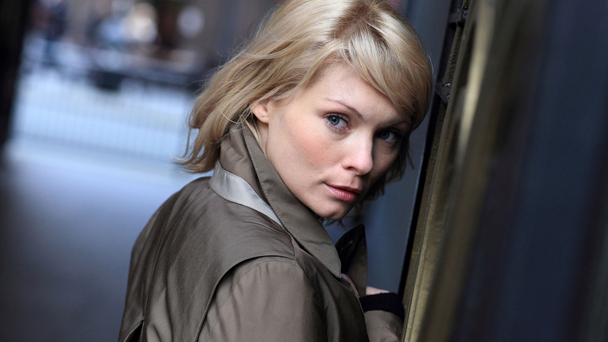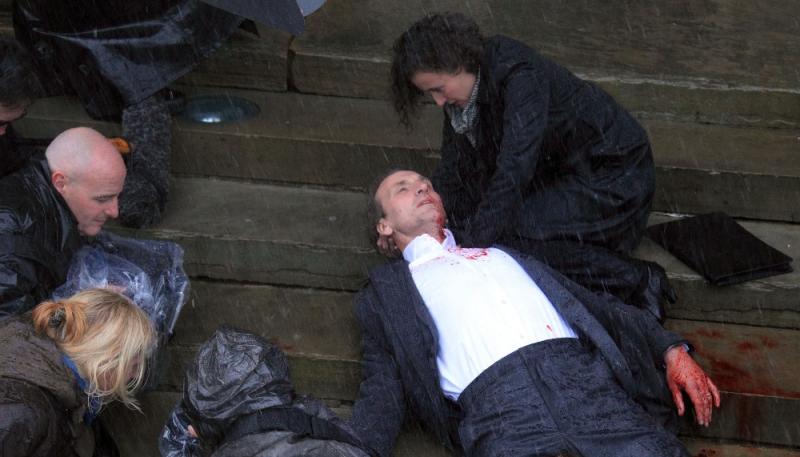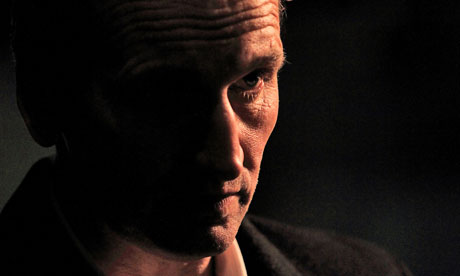“Why’d you have to go and make things so complicated?” Oh Avril, we miss you. We miss you not just for those unashamedly stroppy, post-innocence but pre-student loan days that you’ve come to represent for a whole generation, but we miss you for the lyrical perspicacity that modern pop princesses can only snatch at (“And he ill, he real, he might got a deal, he pop bottles and he got the right kind of bill...” whaaaa?). Even minus the shopping centre skateboarding, Ms Lavigne’s grumbles about complication-frustration hold true a decade on. Case in point: the French-learning fiasco I outlined a few posts back. The first couple of CDs I saw off with pretty impressive alacrity; I thought Rosetta Stone and I were to get on magnificently. Around CD four, though, when the tracks veered away from the basics, things went woefully and flamboyantly wrong: voulezvoulentleteerent wrong. True, I’d achieve precious little on the streets of St Benoit armed only sketchily with the present tense and a flawless readiness to count to dix, but the headache these advanced CDs gave me just wasn’t worth my time (my temps- that was disc three). Of course, extra complexities aren’t always bad news; imagine Harry Potter with no Horcruxes, or the contentedly married Walford-resident without his illegitimate sons: batty. Part two of the Beeb’s three-part drama, “Blackout”, had tons of added intricacies- both the welcome sort and the vexing.
Thankfully, the episode got started with the bulking up of areas that had screamed for attention last time. Alex Demoys, whose overly simplistic characterization I bemoaned in my previous “Blackout” post, finally came to rival the Daniels and the Sylvies that give this series its grit. In an opening scene, as her children marveled at their former vodka-swilling pop having become a mayor with a multi-million pound budget at his command, Alex’s cynicism and envy were palpable; here was a character not just, as last time, content to base her moods around the sobriety of her husband, but a character with her own haul of insecurities. Alex’s newfound selfdom had yet more chance to show itself as she uncovered evidence pointing to Daniel’s involvement in the murder of bent businessman Henry Pulis. Their first confrontation was void of cliched sensationalism and well in-keeping with the brutality and bleakness of the series, but I cringed a little at Alex’s nonchalance towards her husband’s bloodied hands. Gladly, when they later met at a deserted car park and Alex demanded to know every detail of her husband’s crime, her reaction shot up the credibility scale and reignited the idea that she was a substantial character in her own right.
 |
| Finding her voice: Alex's development provided one of the episode's highs |
A heap of Sylvie’s superfluity this week came from the extra dimension afforded to her psychotic ex, Dalien Bevan, since episode one. Last time, he had been the guy to evidence Sylvie’s tough life as a lone parent, obsessed by the idea that she had a new man and determined to put a stopper in any such budding romance. The added depth of this week, however, called him to the fore not just as an appendage of Sylvie but independently of his post as clingy-ex, and saw him extend his meddling and fanatical traits to the main story. As Daniel’s fog lifted and he recalled a homeless man being in the alley as he did away with Pulis, he did all he could to ensure the new witness wouldn’t be the one to give him away to the police, bungling him away in a hotel as he was named as Frank Waters, an official suspect in Pulis’ murder case. When Detective Bevan (literally- he’s a cop, fortunately enough for plot cohesion...) found Waters dead under a bypass, both he and Daniel smelled foul play. “When everything is so good, it must be bad,” Bevan sagely told a freshly conflicted Daniel, as he vowed to get to the bottom of why his police superiors were set on covering up Pulis’ murder and told Demoys their conversation was his insurance should they notice his poking around. It was a brassy move to interweave Daniel’s and Bevan’s interests so thickly, but a move that was carried out deftly and with only limited amounts of viewer head-scratching as a result: a bit of a jumble, granted, but worth getting a hold on.
 |
| Fall from grace: Sylvie slipped from interesting to inconsequential |
My last “Blackout” post championed Eccleston’s Demoys for his believability and depth, and this week’s episode deserves a nod for maintaining the standard. Plainly, Demoys’ elevation to mayor since week one was going to engender somewhat of a change in his drunk, lousy demeanor, and there was a touch more James Bond than senior hooligan to Daniel from the get go this week; the crisp white shirts, the moral reluctance to let fat-cat businessmen profit from the public purse and the doting daddy part completed the newly spotless look. At no stage though, was Demoys’ shift from lout to local poster boy without plausibility; his ongoing two-facedness with Pulis’ daughter (even jesting at one stage that she might accuse him of murder), his continued alcoholic pangs and his advising Alex how to get herself out of trouble should the cops come knocking all reminded an audience of Daniel’s double-dealing past and still very much active shady character.
Much more than its predecessor, “Blackout’s” second installment was plot- rather than character-driven, with the Demoys, Sylvie and Bevan developing organically as the story required. Less of an easy watch and more likely to call for the pause button, week two’s episode highlighted just how intricate the drama’s producers are willing to be and hinted at how much more entangled things could get before the final credits roll. I’m hoping next week the producers layer on a couple more twists but, crucially, only do so with the same tidiness and coherence used to entangle Demoys and Bevan. “Why’d you have to go and make things so complicated?” Because they do it so well, Avril.










